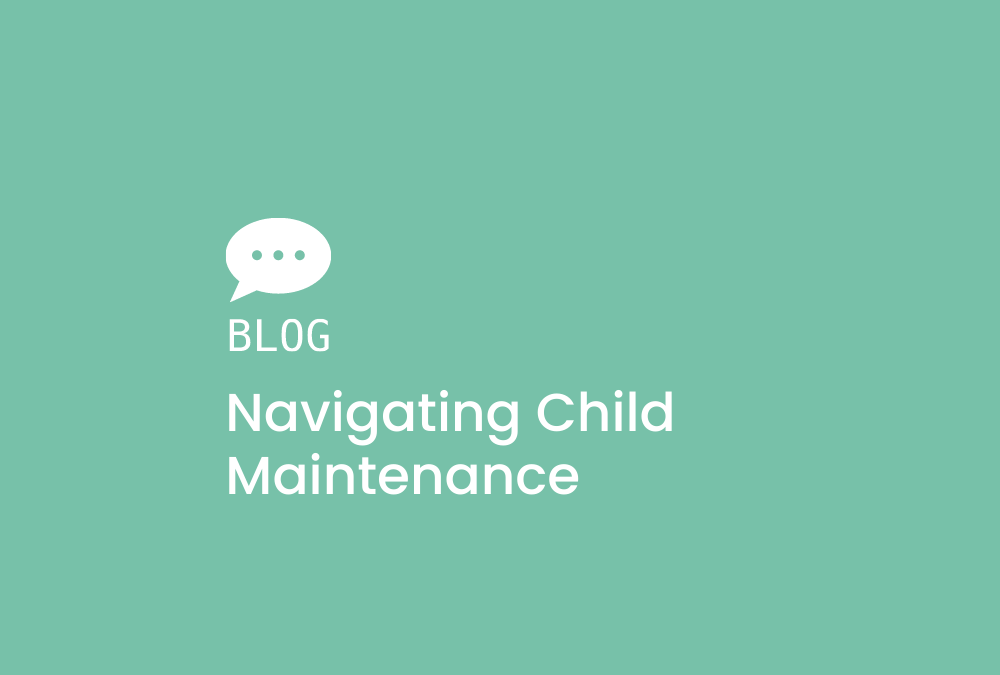The subject of child maintenance can be a delicate one for parents going through a separation. Who has to pay? How much do they have to pay? How can an agreement be reached? These are all common (and sometimes difficult!) questions that arise and our guide below aims to hopefully clarify matters…
Who is liable to pay child maintenance?
If parents reach an agreement to have shared care of the children, there is generally no expectation for either of them to pay child maintenance to the other.
However, in circumstances where one parent is the primary caregiver for the children and the other parent spends time with the children, there is an expectation that the non-resident parent will pay financial support for the children. There are several options available to parents in order to reach an agreement as to how much child maintenance should be paid to the parent who is the primary caregiver.
Can parents reach an agreement between themselves?
Yes! Parents can agree between themselves as to the amount of maintenance payable as well as how and when the payments should be made. This is known as a Family Based Arrangement.
There may be circumstances where communication between the parents is difficult and they may just need a little bit of help in order to communicate and reach an agreement. Family mediation can be a great tool which provides parents with a mediator who can facilitate constructive conversations with the view of reaching an agreement.
The child maintenance calculator can assist in agreeing upon the amount of child maintenance that should be paid – https://www.gov.uk/calculate-your-child-maintenance. Generally speaking, the calculation is based upon the number of nights the child spends with each parents as well as the level of income of the paying parent.
When does the Child Maintenance Service (CMS) become involved?
If parents can reach an agreement between themselves, there is no need for formal CMS involvement. However, in circumstances where there is a dispute between the parents in relation to child maintenance, either parent can make an application through the CMS for which there is a fee of £20 (subject to change).
How are the payments made through the CMS?
Once the CMS has calculated the appropriate level of maintenance, the payments can then be made in the following ways:
- Direct Pay – This is where payments are made directly between the parents.
- Collect and Pay – The paying parent will pay the money to the CMS who will then pass it on to the receiving parent. There are however additional associated fees for using this method.
What happens if a parent fails to make a payment?
The CMS have a range of powers available to them in cases where a parent fails to make a payment following a CMS assessment. This will involve contacting the parent in the first instance but this can escalate to taking the money directly from their earnings or from their bank.
The CMS can also apply to the Court for a liability order which would allow them to take action such as instructing a bailiff, putting a charge against a property or forcing a sale, removal of the non-paying parent’s driving licence or even prison time.
Can child maintenance be dealt with as part of divorce proceedings?
Yes! If the parents are already going through court proceedings in order to deal with the finances associated with the marriage, the issue of child maintenance can be dealt with as part of those proceedings.
Similarly, if the parents have reached an agreement between themselves in relation to the finances by way of a Consent Order, provision for child maintenance can be included within the order.
However, any provision for child maintenance within a Court order is only valid for 12 months after the order is made after which point either parent can apply to the CMS if they are unhappy with the provision unless the CMS does not have jurisdiction, for example, if a parent lives overseas.
Where the CMS do not have jurisdiction, it may be possible for a parent to apply for child maintenance under Schedule 1 of the Children Act 1989.
For more information speak to one of our experienced family solicitors on 0113 322 9222 or enquires@consilialegal.co.uk or by completing our contact us form.

